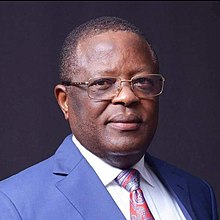
In a bid to build on milestones attained in managing the coronavirus pandemic, President Muhammadu Buhari has given his consent to Nigeria’s hosting an international summit on Primary Health Care.
Health managers are fine-tuning details of the global summit which is expected to leverage on efforts in kicking the wild polio virus out of the country and the deft management of COVID-19.
Barring last minute changes, the summit will hold in Abuja before the end of October or early November in actualization of the promise made earlier by the Executive Director of the National Primary Health Care Development Agency, Dr. Faisal Shuaib to prioritise strengthening the PHC system through a robust revitalization agenda.
Recall that last year, the agency had engaged with the heads of community medicine departments of universities to discuss and receive critical feedback on prevailing issues of interest to primary health care development in Nigeria. It also met other critical stakeholders in the bid to strengthen the PHC system and deliver affordable, accessible and equitable services.
“My vision is to strengthen PHC systems to deliver affordable, accessible and equitable services to all Nigerians. It is in this light that we will be convening a global PHC Summit in 2021 with the theme: Strengthening PHC towards achieving universal health coverage in post-Polio, Peri -COVID era.
“The overall goal of the summit is to galvanize stakeholders and present a compelling investment case for PHC financing, leveraging on the gains made during the polio eradication to strengthen PHC systems from 2021 to 2030. I am optimistic that this event will be a success and a global agenda to be reckoned with,” Dr. Shuaib said.
The summit aligns with the “Next Level Agenda” of the Minister of Health, Dr. Osagie Ehanire on addressing the inadequacy of primary health care services across the country and the need to revitalise one PHC in each ward in demonstration of prioritizing community based health care and scaling up the Community Health Influencers, Promoters and Services, CHIPS, programme launched by President Buhari in 2018 at Lafia, Nasarawa State.
CHIPS is designed to improve access and equitable coverage to essential health services, especially those relating to maternal, new born and child survival. It will also remove barriers to PHC services; ensure supply of integrated PHC interventions by linking the health workforce at health centres in rural and underserved communities to the households; tackling delays in decision to seek care, reaching care and receiving adequate healthcare.
The summit is coming at a time when government resources alone have become inadequate to fund the health sector, especially with the global COVID-19 pandemic and the resurgence of cholera in many states across the country.
At a meeting with federal lawmakers, the Secretary to the Government of the Federation, Mr Boss Mustapha had said that COVID-19 provided a unique opportunity to x-ray the state of Nigeria’s health care sector which is in dire need of reforms and funding.
“The weaknesses in our health system became more glaring as we see how more established health systems in Europe and America buckled under pressure. There’s no doubt that a strengthened and well-resourced health system will not only place the country in a better position to deal with future emerging infections but will also provide a solid foundation for medical research and development,” said Mustapha.
The summit will also rally the support of the Coalition Against COVID-19, CACOVID – the private sector-led organization assembled by the Central Bank of Nigeria to assist the federal government in combating COVID-19. The coalition of industry giants, banks and several private organisations and individuals raised huge funds to procure essential supplies, equipment while also accelerating tests and treatment for COVID-19.
Last August, Nigeria attained wild polio-free status after meeting all the criteria for certification, which include three years of non-detection of any wild polio virus case in the country.
Before the certification, Nigeria, Afghanistan and Pakistan were the only countries harbouring the wild polio virus.
The feat was widely applauded by the World Health Organisation, WHO and United Nations International Children’s Emergency Fund, UNICEF. Both congratulated Nigeria on being declared free of the wild polio virus but stressed that achieving this milestone is not the end of the job – all children under five years must continue to be vaccinated against vaccine-preventable diseases.
The agencies expressed strong appreciation for the role played by all stakeholders, especially the commitment and support of the Nigerian government at all levels, development partners, donors, traditional and community leaders, health workers and caregivers.
“WHO rejoices with the people and government of Nigeria and acknowledges that wild polio-free certification is undoubtedly the greatest public health triumph in the annals of Nigeria and indeed Africa that will bequeath to posterity lessons learnt and best practices for addressing future public health interventions,” said Dr Walter Kazadi Mulombo, WHO Nigeria Country Representative.



